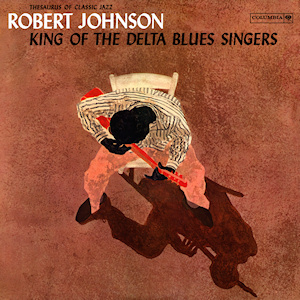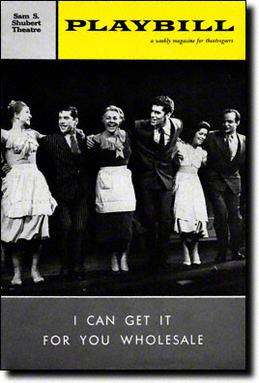
Columbia Records is an American record label owned by Sony Music Entertainment, a subsidiary of Sony Corporation of America, the North American division of Japanese conglomerate Sony. It was founded on January 15, 1889, evolving from the American Graphophone Company, the successor to the Volta Graphophone Company. Columbia is the oldest surviving brand name in the recorded sound business, and the second major company to produce records. From 1961 to 1991, its recordings were released outside North America under the name CBS Records to avoid confusion with EMI's Columbia Graphophone Company. Columbia is one of Sony Music's four flagship record labels: Epic Records, and former longtime rivals, RCA Records and Arista Records as the latter two were originally owned by BMG before its 2008 relaunch after Sony's acquisition alongside other BMG labels.
A cast recording is a recording of a stage musical that is intended to document the songs as they were performed in the show and experienced by the audience. An original cast recording or OCR, as the name implies, features the voices of the show's original cast. A cast recording featuring the first cast to perform a musical in a particular venue is known, for example, as an "original Broadway cast recording" (OBCR) or an "original London cast recording" (OLCR).
Thomas Z. Shepard is an American record producer who is best known for his recordings of Broadway musicals, including the works of Stephen Sondheim. Shepard is also a composer, conductor, music arranger and pianist.

Attilio Joseph "Teo" Macero was an American jazz saxophonist, composer, and record producer. He was a producer at Columbia Records for twenty years. Macero produced Miles Davis' Bitches Brew and Dave Brubeck's Time Out, two of the best-selling and most influential jazz albums of all time. Although the extent of his role has been disputed, he also has been associated with the production of Davis' 1959 album Kind of Blue, jazz's best-selling record. Macero was known for his innovative use of editing and tape manipulation unprecedented in jazz and proving influential on subsequent fusion, experimental rock, electronica, post-punk, no wave, and acid jazz.
"Everybody Loves a Lover" is a popular song which was a hit single for Doris Day in 1958. Its lyricist, Richard Adler, and its composer, Robert Allen, were both best known for collaborations with other partners. The music Allen composed, aside from this song, was usually for collaborations with Al Stillman, and Adler wrote the lyrics after the 1955 death of his usual composing partner, Jerry Ross.
"So in Love" is a popular song, written by Cole Porter, from his musical Kiss Me, Kate, which was based on Shakespeare's The Taming of the Shrew. It was sung in the show by Patricia Morison, reprised by Alfred Drake, and further popularized by Patti Page in 1949.

Orchestral Favorites is an album by Frank Zappa first released in May 1979 on his own DiscReet Records label. The album is entirely instrumental and features music performed by the 37-piece Abnuceals Emuukha Electric Symphony Orchestra. It reached #168 on the Billboard 200 album chart in the United States.

King of the Delta Blues Singers is a compilation album by American Delta blues musician Robert Johnson, released in 1961 by Columbia Records. It is considered one of the most influential blues releases. In 2020, Rolling Stone ranked it number 374 on its list of the 500 Greatest Albums of All Time.

I Can Get It for You Wholesale is a musical, produced by David Merrick, music and lyrics by Harold Rome, and book by Jerome Weidman, based on his 1937 novel of the same title. It marked the Broadway debut of 19-year-old Barbra Streisand, who was nominated for the Tony Award for Best Performance by a Featured Actress in a Musical. The story is set in the New York City Garment District in 1937, during the Great Depression, and the songs utilize traditional Jewish harmonies evocative of the setting and the period of the show.
"It's Magic" is a popular song written by Jule Styne, with lyrics by Sammy Cahn, published in 1947. They wrote the song for Doris Day in her Warner Brothers film debut, Romance on the High Seas. In the autumn of 1948 Vic Damone, Tony Martin, Dick Haymes, Gordon MacRae and Sarah Vaughan all charted on Billboard magazine charts with versions of the song, but none as successfully as Day's recording. "It's Magic" received an Academy Award nomination for Best Song, but in March 1949 lost to "Buttons and Bows" by Jay Livingston and Ray Evans.

Asha Puthli is a singer-songwriter, producer, and actress born on February 4, 1945, and raised in Bombay, India. She has recorded solo albums for EMI, CBS/Sony, and RCA. Her recordings cover blues, pop, rock, soul, funk, disco, and techno and have been produced by Del Newman and Teo Macero.

The Barbra Streisand Album is the debut album by American singer Barbra Streisand, released February 25, 1963, on Columbia Records, catalogue CL 2007 in mono and CS 8807 in stereo. It peaked at number 8 on the Billboard Top LPs, and has been certified a gold album by the RIAA. By 1966, the album had sold over one million copies worldwide.

The Pajama Game is an album released on August 12, 1957 by Columbia Records. It contains songs from the movie of the same name, mostly sung by Doris Day and John Raitt. The catalog number was OL-5210.

I Left My Heart in San Francisco is an album by American singer Tony Bennett, released in 1962 on Columbia Records. It peaked at No. 5 on the Billboard Top LPs chart and has been certified platinum by the RIAA. Originally available as Columbia rekey CL 1869 (mono) and CS 8669 (stereo), it is one of the best-selling albums of Bennett's career.
"The Best Thing for You (Would Be Me)" is a popular song written by Irving Berlin and published in 1950. It was featured in the 1950 Broadway musical play, Call Me Madam, in which it was introduced by Ethel Merman in a scene with Paul Lukas. The 1953 film version also featured the song when it was sung by Ethel Merman and George Sanders.

Blue Rose is the debut studio album by Rosemary Clooney, in collaboration with Duke Ellington and his orchestra, released in mono on Columbia Records, catalogue CL 872. Although she had appeared on albums before, it had been in the context of either a musical theater or multiple artist recording. The album also marked the return of Ellington to Columbia after an absence of four years, and was one of the first examples of overdubbing being used as an integral part of the creation, rather than for effects or to correct mistakes.
Gene Leis was an American jazz guitarist, teacher, bandleader, composer, producer, and entrepreneur.
"This Is All I Ask" is a popular song written by Gordon Jenkins in 1958.
"The Christmas Waltz" is a Christmas song written by Sammy Cahn and Jule Styne for Frank Sinatra, who recorded it in 1954 as the B-side of a new recording of "White Christmas", in 1957 for his album A Jolly Christmas from Frank Sinatra, and in 1968 for The Sinatra Family Wish You a Merry Christmas.
The Nervous Set is a 1959 Broadway musical written by Jay Landesman and Theodore J. Flicker which centers on the Beat Generation. It tells the story of a wealthy publisher and his wife from a Connecticut suburb exploring the Greenwich Village of New York City as they navigate their dysfunctional marriage.










